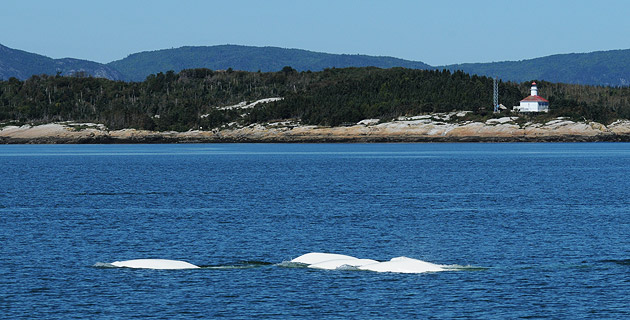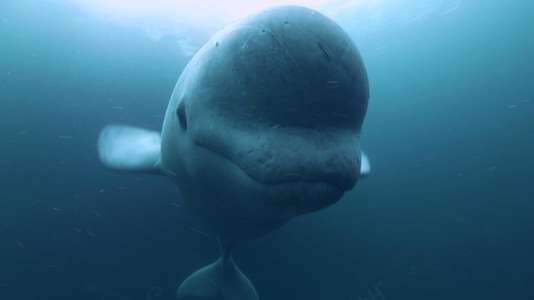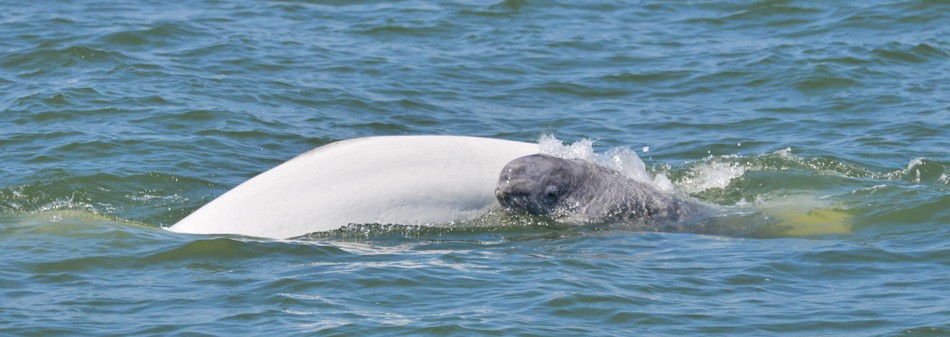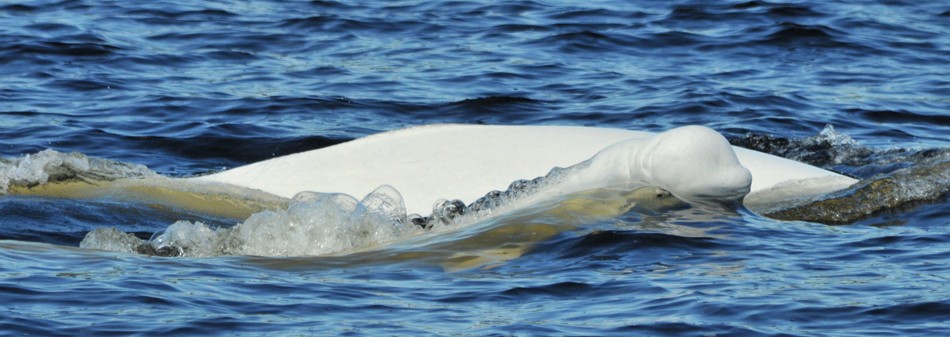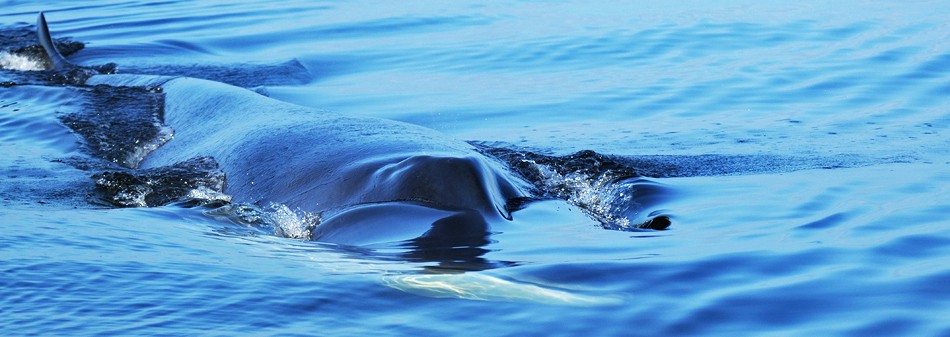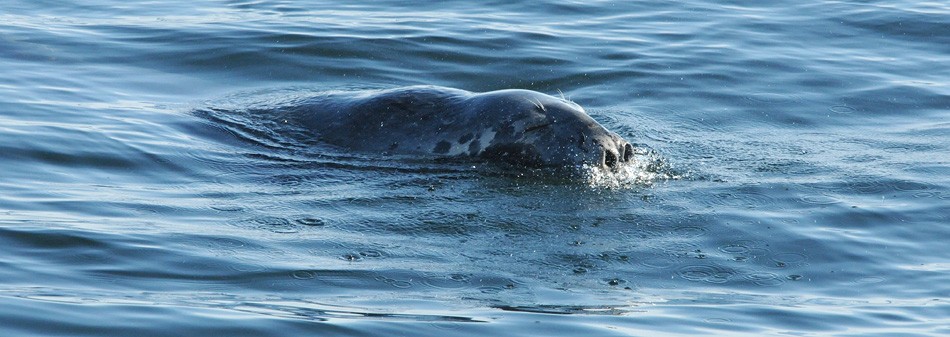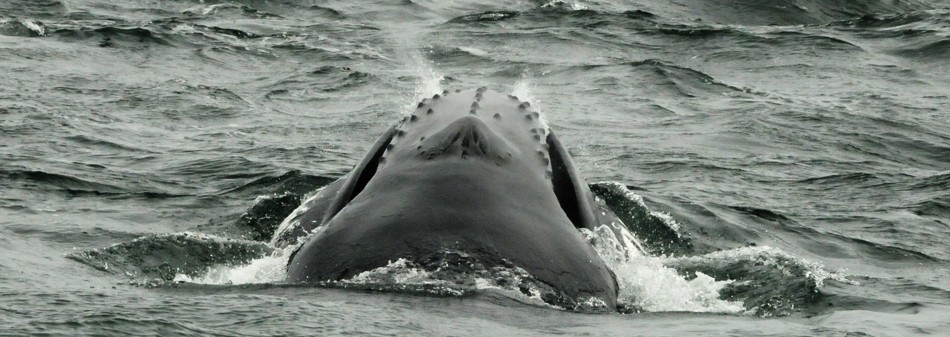News
-
19/12/2024
DIRECTOR, MARINE MAMMAL EMERGENCIES — UMM — GREMM
THE ORGANIZATION AT A GLANCE The Quebec Marine Mammal Emergency Response Network (QMMERN) is responsible for organizing, coordinating and implementing measures aimed at reduci...Lire la suite Lire moinsTHE ORGANIZATION AT A GLANCE
The Quebec Marine Mammal Emergency Response Network (QMMERN) is responsible for organizing, coordinating and implementing measures aimed at reducing accidental mortality of marine mammals, rescuing animals in difficulty, and facilitating the acquisition of data from animals in the waters of the St. Lawrence.
Marine Mammal Emergencies (UMM) is the QMMERN’s centre of operations. Every year, it receives more than 900 reports corresponding on average to some 500 incidents involving dead, injured or distressed marine mammals. UMM is responsible for coordinating the responses to these incidents, from receiving reports to documenting cases, including interventions and field sampling.
*** UMM is the 911 for whales and seals ***
UMM is managed by the Group for Research and Education on Marine Mammals (GREMM), a non-profit organization dedicated to scientific research and conservation education with a focus on the whales of the St. Lawrence and their habitat.
To learn more about GREMM and QMMERN, please visit our websites: https://gremm.org/en/ and https://baleinesendirect.org/en/marine-mammal-emergencies/
JOB DESCRIPTION
The UMM Director is responsible for overseeing all UMM operations. The selected candidate will participate in case management, from initial reports to documentation, including interventions and field sampling. He or she will support UMM’s mobile teams and coordinate the response of satellite teams, partners and QMMERN volunteers who assist UMM in its mission. The individual will be responsible for developing and updating protocols and procedures for documenting reports and responding to incidents. A high degree of scientific rigour is required, as the selected candidate will be responsible for managing databases, analysis, and disseminating results to partners and the scientific community.
The UMM Director is a member of the QMMERN coordination centre and works closely with the Coordinator, Scientific Director, and Management and Conservation Unit Director to develop the QMMERN’s development and orientation plans.
PRIMARY RESPONSIBILITIES
AS DIRECTOR of Marine Mammal Emergencies, you will be:
- Responsible for UMM’s response efforts, including managing cases and developing and implementing intervention plans
- Responsible for developing and updating protocols and procedures
- Responsible for UMM teams
- Responsible for UMM management
- Responsible for databases and data analysis, publication and sharing
- Member of the coordination centre
TASKS
- Participate in case management and ensure the preparation of intervention plans
- Ensure the quality and efficiency of responses to incidents by supporting UMM teams in their management of cases
- Assess UMM operational capabilities
- (Shared) responsibility for UMM response outside normal working hours
- Oversee monitoring of the vigilance program
- Oversee the recruiting, training and supervision of UMM teams
- Promote the production and dissemination of scientific reports based on data collected in the context of UMM activities and oversee the production of UMM incident reports
- Oversee planning and implementation of UMM development and management
Note: The list of main tasks and responsibilities is for indicative purposes only. It is not intended to be an exhaustive or detailed list of tasks and responsibilities that might be carried out by the UMM Director.
ESSENTIAL QUALIFICATIONS
Education
- Post-graduate university degree in biology, animal health, the environment, or a related field
- Candidates with a combination of relevant experience deemed equivalent may be retained
Experience
We are looking for an individual with experience* in the following aspects:
- Design, planning and execution of protocols and procedures such as ecosystem monitoring, population tracking, or animal health or behavioural studies, including field experience
- Collaboration with multiple stakeholders or partners to advance conservation or research projects or initiatives
- Team supervision (a plus)
- Field logistics, e.g. navigation or operation of small boats, operation of heavy vehicles and trailers (a plus)
*Experience must be recent, significant and have been acquired roughly in the last five years, over a minimum period of two years.
Know-how
- Knowledge of marine mammals, fisheries and/or environmental issues affecting the marine ecosystem
- Familiarity with database management and analysis tools (GIS,R, etc.)
- Familiarity with SCI processing system (a plus)
- Good knowledge of French and English to communicate clearly and effectively both orally and in writing*
* or willingness to learn quickly
Candidate profile
- Initiative and leadership
- Autonomy and resourcefulness
- Ability to adapt
- Stress tolerance
- Scientific rigour
- Good analytical and problem-solving capacity
- Interpersonal skills, diplomacy, ease of communicating with the public
WORKING CONDITIONS
Location: Rimouski and/or Tadoussac
Hours: Full time (including occasional weekends)
Salary: Between $50,000 and $60,000 depending on candidate’s profile and current salary structure
Start date: As early as possible beginning in March 2025 (or sooner, if possible)
Duration: One year (renewable)
Interested in joining our team?
To submit your application, please attach in a single file a cover letter and a recent CV and submit to Patrick Weldon, Director of the Management and Conservation Unit, at the following address: [email protected]
Application deadline: January 24, 2025
After you submit your application, you will receive a confirmation of receipt. We thank all candidates for their interest in our organization. Only candidates selected for an interview will be contacted.
GREMM values diversity and invites all qualified individuals to apply. Priority will be given, however, to Canadiancitizens and permanent residents. For additional information, please contact Patrick Weldon at [email protected]
-
03/03/2023
Job offer: naturalist
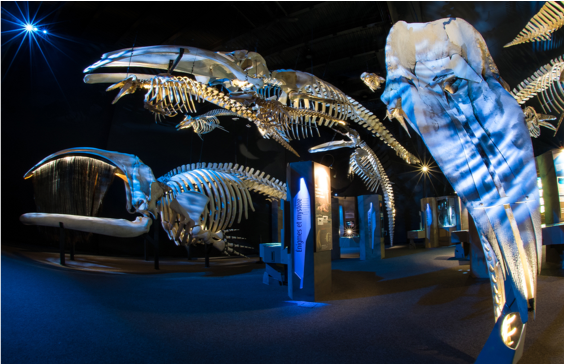 Workplace: Tadoussac (Québec, Canada) Marine Mammal Interpretation Centre (CIMM) Job summary Do you want to immerse yourself in the fascinating world of the whales of the St. Lawr...Lire la suite Lire moins
Workplace: Tadoussac (Québec, Canada) Marine Mammal Interpretation Centre (CIMM) Job summary Do you want to immerse yourself in the fascinating world of the whales of the St. Lawr...Lire la suite Lire moinsWorkplace: Tadoussac (Québec, Canada)
Marine Mammal Interpretation Centre (CIMM)
Job summary
Do you want to immerse yourself in the fascinating world of the whales of the St. Lawrence and enjoy sharing your knowledge with the public? Do you want to be part of a stimulating work environment and contribute to its success? Join our dynamic team and fill your professional experience with whale stories!
This summer, you will be working at the Marine Mammal Interpretation Centre (CIMM) in Tadoussac, in the heart of whale country. You will share your passion and knowledge with visitors, in the company of the largest collection of whale skeletons in North America.
About the organization
Founded in 1985 and based in Tadoussac, the Group for Research and Education on Marine Mammals is a non-profit organization dedicated to scientific research on the whales of the St. Lawrence and education for the sake of marine conservation.
GREMM operates from its base in Tadoussac, at the Marine Mammals Interpretation Center (CIMM). The GREMM is a small team marked by the passion and versatility of its members, whether they are researchers, biologists, naturalists or attendants. Our mission: greater understanding for better protection. Our method: study whales and tell their story. We invite you to come and discover us!
To learn more about the organization: gremm.org and facebook.com/GREMM1985
To learn more about our work: baleinesendirect.org/en/
What you will do
As a naturalist, you have a key role to play in communicating and popularizing science to visitors. With your interventions, people are touched and better understand the issues facing the whales of the St. Lawrence. They are thus more inclined to protect them.
Your main place of work, the CIMM, is the reference and news center on the whales of the St. Lawrence and its visitors come from all over the world! Its exhibition showcases a collection of skeletons that is unique in Canada. GREMM also provides interpretation at Parks Canada’s Pointe-Noire interpretation and observation site. Here are the main tasks of the position:
- Welcome visitors to the CIMM, inform them about the visit, the activities and the mission of the organization
- Carry out cash transactions (admission fees)
- Answer visitors’ questions about the region and its tourism offer
- Answer visitors’ questions about whales, the marine environment, scientific research and the history of the North Shore region.
- Animate different capsules and activities about the whales and skeletons of the collection
- Interpret the natural and historical heritage of the region by meeting with visitors at various sites
- Develop your communication and heritage interpretation skills
- Participate in team training at the beginning of the season
- Keep up to date on news concerning the whales of the St. Lawrence
- Possibility of participating in the writing of the Whales Online website according to your profile
Our ideal candidate
A friendly, outgoing person who loves to talk and share their knowledge with the public! This person takes the initiative to approach visitors and knows how to arouse their interest and capture their attention with their whale stories. They know how to popularize and adapt their speech to the public, and always transmits their information with rigor. More specifically, we are looking for someone who:
- Has good interpersonal skills and is comfortable with the public
- Has a good sense of synthesis and scientific rigor
- Is available, open and works well in a team
- Has a background in biology and/or experience in interpretation
- Is curious and a quick learner
- Fluent in spoken French and able to express themselves well in English
Working conditions
- Location: Tadoussac (low cost accommodation available)
- Schedule: 5 days/week, 40 hours/week
- Hourly rate: $17.50/hr to $18.50/hr, depending on experience
- Start date: mid-May (to be determined)
- Paid training at the beginning of the season (2 to 4 weeks, depending on availability)
- Must be a Canadian citizen or have a valid work permit to work in Quebec
To send your application
Send your resume and a letter of motivation before March 17, by email to Véronique Genesse and Christine Stadelmann, chiefs naturalists: [email protected].
We thank all applicants for their interest in our organization. Only those selected for an interview will be contacted.
-
27/02/2023
Job offer : boutique and reception attendant
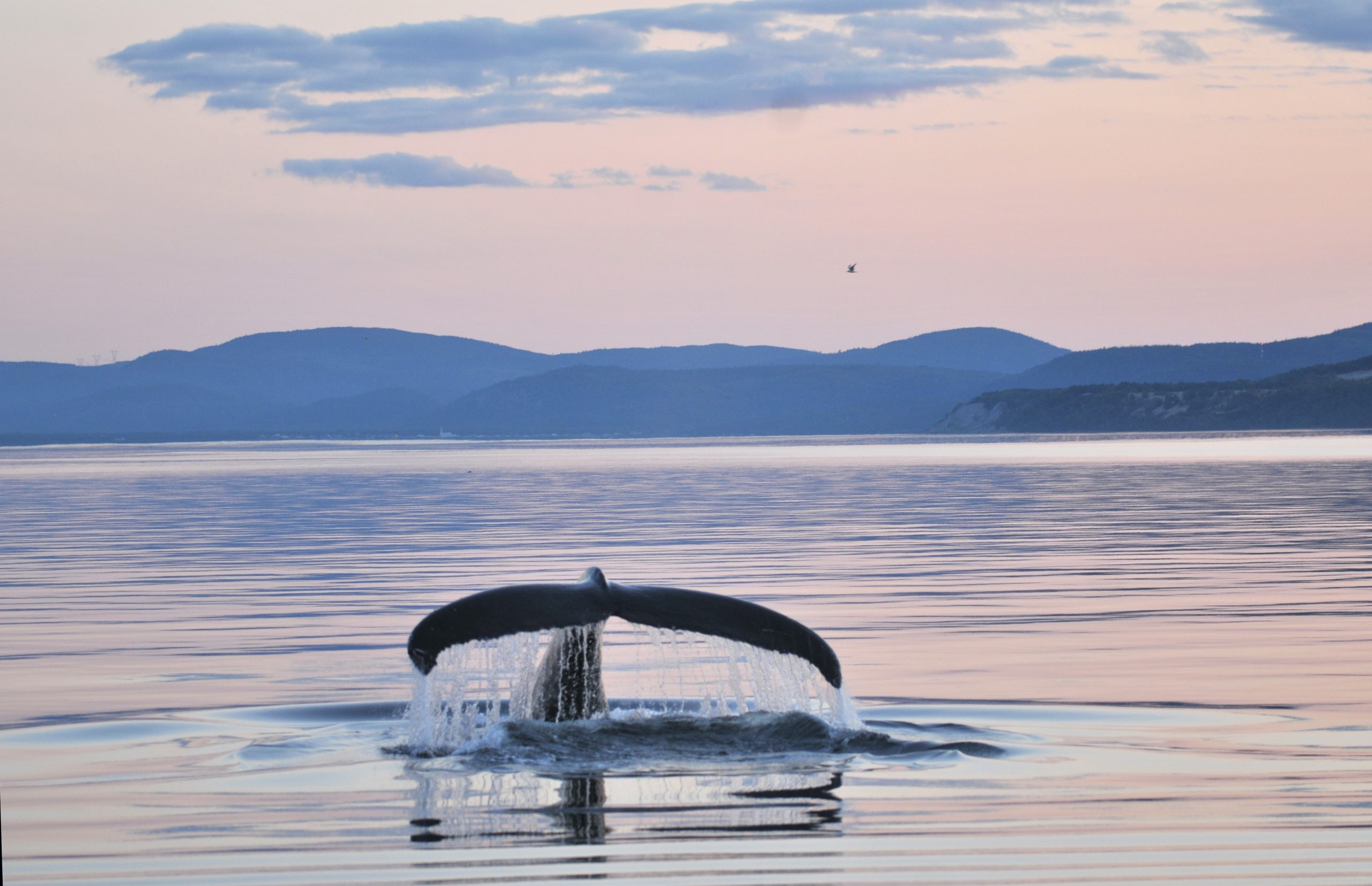 Workplace: Tadoussac (Marine Mammal Interpretation Centre) Seasonal job, full time or part time depending on availability Summary of the job Do you want to be part of a stimulating...Lire la suite Lire moins
Workplace: Tadoussac (Marine Mammal Interpretation Centre) Seasonal job, full time or part time depending on availability Summary of the job Do you want to be part of a stimulating...Lire la suite Lire moinsWorkplace: Tadoussac (Marine Mammal Interpretation Centre)
Seasonal job, full time or part time depending on availability
Summary of the job
Do you want to be part of a stimulating work environment and contribute to its success? Do you enjoy dealing with the public and have customer service skills? Join our dynamic team! You will also have the chance to learn more about whales and even observe them regularly from your workstation!
About the organization
Founded in 1985 and based in Tadoussac, the Group for Research and Education on Marine Mammals is a non-profit organization dedicated to scientific research on the whales of the St. Lawrence and education for the sake of marine conservation.
GREMM operates from its base in Tadoussac, at the Marine Mammals Interpretation Center (CIMM). The GREMM is a small team marked by the passion and versatility of its members, whether they are researchers, biologists, naturalists or attendants. Our mission: greater understanding for better protection. Our method: study whales and tell their story. We invite you to come and discover us!
To learn more about the organization: gremm.org and facebook.com/GREMM1985
To learn more about our work: baleinesendirect.org/en/
What you will do
When visitors enter the CIMM, their first contact is with the reception and boutique staff, who welcome them, advise them and orient them, and handle the cashier’s transactions.
Here are the main tasks of the position:
Boutique side :
- Open the store and cash register and close them at the end of the day;
- Carry out cash register transactions;
- Greet visitors who enter the store;
- Target the customer’s needs and advise them on the different products in the store;
- Explain that all profits are reinvested in research.
Reception side :
- Greet visitors to the CIMM, inform them about the visit, activities and mission of the organization;
- Carry out cash transactions (admission fees);
- Inform visitors about the presence of whales in the area;
- Answer visitors’ questions about the region and its tourism offer;
- Manage the flow of visitors.
Our ideal person
A welcoming person who takes the initiative to approach visitors and takes pride in sharing the organization’s mission. They know how to effectively manage busy times, but also knows how to use their time well in quieter times. Specifically, we are looking for someone who:
- Is personable and comfortable with the public
- Ability to work in a team
- Is attentive to what is going on around them
- Fluent in spoken French and able to express themselves in English
Working conditions
Location: Tadoussac
Required: available on weekends
Accommodation: possibility of low cost accommodation on site
Start date: End of May/beginning of June
To send your application
Email your resume and letter of motivation to: [email protected]
Groupe de recherche et d’éducation sur les mammifères marins
108 de la Cale Sèche
Tadoussac (Québec) G0T 2A0
418 235-4701We thank all applicants for their interest in our organization. Only those selected for an interview will be contacted.
-
20/01/2022
Simon Gauthier, the Unforgettable
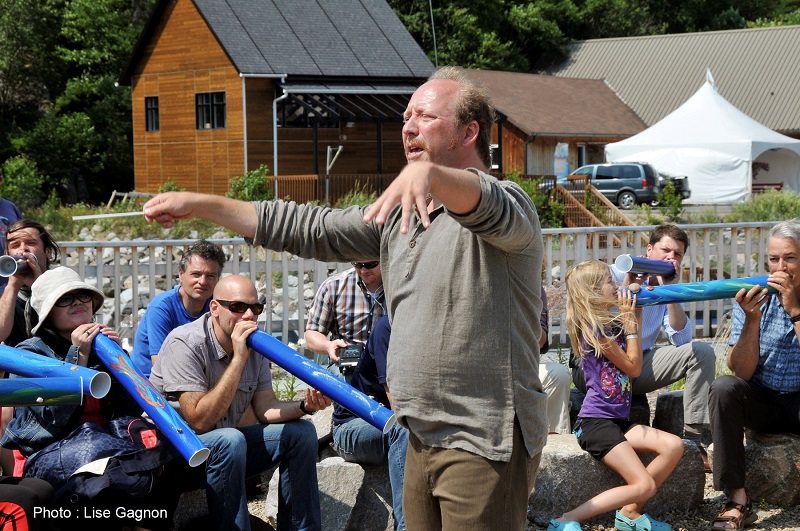 The GREMM team is deeply saddened to have learned of the death of storyteller Simon Gauthier. This artist and poet from Sept-Îles was a virtuoso when it came to creating plays on ...Lire la suite Lire moins
The GREMM team is deeply saddened to have learned of the death of storyteller Simon Gauthier. This artist and poet from Sept-Îles was a virtuoso when it came to creating plays on ...Lire la suite Lire moinsThe GREMM team is deeply saddened to have learned of the death of storyteller Simon Gauthier. This artist and poet from Sept-Îles was a virtuoso when it came to creating plays on words and moving stories.
The Marine Mammal Interpretation Centre had the chance to serve as a venue for his acts every year since the beginning of his career. For more than twenty years, he presented many tales here, including Corne de brume, a show featuring stories inspired by whales. Funny, touching, moving and thought-provoking, Simon’s stories always had their own unique flavour. His performances were often sold out. He was also the designer of the famous “baleinophone,” a musical instrument that mimics singing whales, as well as the co-creator of CIMM’s flagship activity: whale song lessons.
Simon was an artistic pillar in the region. In 2001, he was proud to have been named Côte-Nord Ambassador by Tourisme Côte-Nord and, in 2002, he received the Côte-Nord Author of the Year distinction at the Montréal book fair. In addition, he founded the Tadoussac storytelling festival (Les conteurs en rafale) and played an important role in promoting Québécois stories in schools in the province’s Côte-Nord region. He was a unifier and regularly involved his fellow storytellers in his own projects.
He traveled extensively in the French-speaking world and his work touched the hearts of many during his tours in Belgium, Switzerland, the Netherlands, Tunisia, and Burkina Faso. But even after achieving success on the international stage, he always returned to Tadoussac. All those who met him were forever marked by this unforgettable individual.
Original, visionary, inspiring… Simon was also a dear friend.
-
21/06/2021
Our yearly newsletter The Souffleur is now online
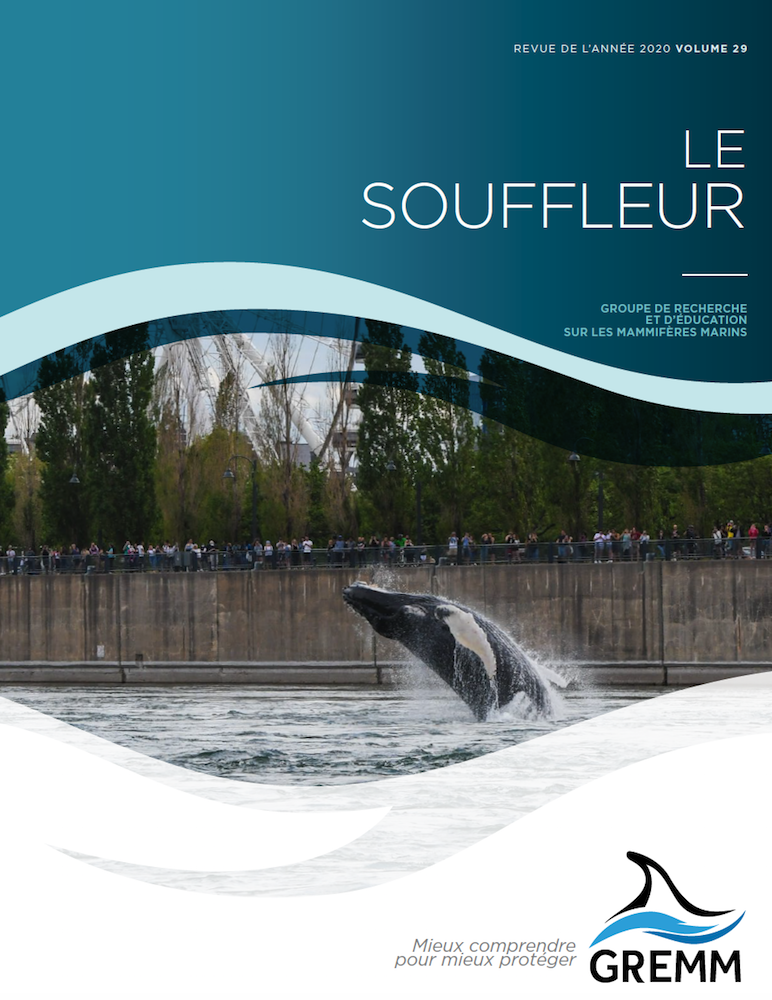 As our research boats are about to sail and the Marine Mammal Interpretation Center has opened its doors, it is time to share with you the results of our year 2020. With this link,...Lire la suite Lire moins
As our research boats are about to sail and the Marine Mammal Interpretation Center has opened its doors, it is time to share with you the results of our year 2020. With this link,...Lire la suite Lire moinsAs our research boats are about to sail and the Marine Mammal Interpretation Center has opened its doors, it is time to share with you the results of our year 2020. With this link, you can browse through The Souffleur, our annual newsletter. You will discover the challenges that the pandemic has brought to our activities and the beautiful discoveries that we have made. Si vous préférez le lire en français, cliquez ici. You want to read our archives? Visit the Mission section of this website.

